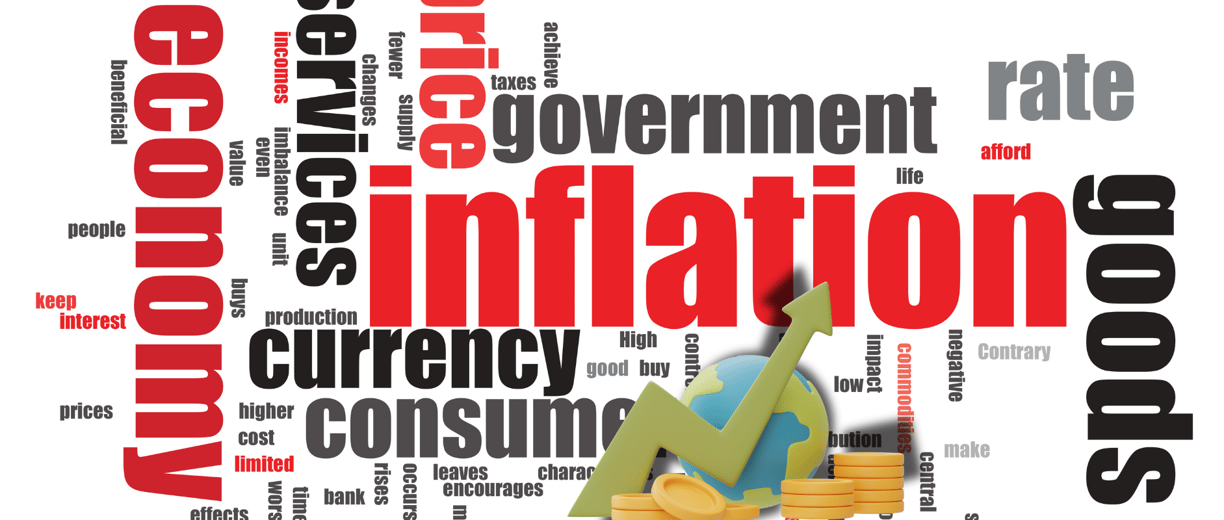India CPI Inflation Rate for March 2023
India CPI inflation rate for March 2023 was reported at 3.34% year-on-year, down from 3.61%. This lower-than-expected rate provides insights into the economic landscape. Read more in both Hindi and English by Gikson George.
learnwithgg
4 min read


What this means:
CPI Inflation: CPI stands for Consumer Price Index. It measures the average change over time in the prices of a basket of consumer goods and services. It's a key indicator of inflation in an economy.
Year-on-Year: This means the inflation rate of March 2025 is being compared to the inflation rate of March 2024.
3.34%, Down from 3.61%: This indicates that the rate at which prices of goods and services increased in March 2025 was 3.34%, which is lower than the 3.61% increase observed in the same period last year.
Lower than Expected: This is a crucial point. Economic analysts and the market likely had a forecast for the March inflation rate, and the actual figure of 3.34% is below that expectation.
How the Stock Market Typically Reacts to Lower-than-Expected Inflation:
A lower-than-expected inflation rate is generally considered positive for the stock market for several reasons:
Potential for Lower Interest Rates: Central banks (like the Reserve Bank of India - RBI) use interest rates as a primary tool to control inflation. When inflation is high, they tend to raise interest rates to cool down the economy. Conversely, when inflation is lower and within a comfortable range, there is less pressure on the central bank to raise rates, and potentially even room for rate cuts in the future. Lower interest rates:
Reduce borrowing costs for companies, leading to higher profitability and investment.
Make fixed-income investments (like bonds) less attractive compared to equities, potentially driving more investment into the stock market.
Can boost consumer spending as loans for houses, cars, etc., become cheaper.
Improved Corporate Earnings Outlook: Lower inflation can translate to lower input costs for businesses, potentially improving their profit margins. Additionally, stable or lower inflation can lead to more predictable consumer demand and spending.
Increased Investor Confidence: Lower inflation suggests a more stable and predictable economic environment, which can boost investor confidence and lead to increased participation in the stock market.
Higher Disposable Income: When inflation is lower, the purchasing power of consumers' income is higher, leaving them with more money to spend or invest.
Historical Context of Stock Market Reactions to Inflation Data in India:
It's important to note that the stock market's reaction to inflation data is not always uniform and can be influenced by various other factors, including:
Overall Economic Sentiment: If the broader economic outlook is positive, lower inflation data is likely to be received even more favorably. Conversely, if there are other concerns about growth or global factors, the positive impact might be muted.
Central Bank's Stance: The market will closely watch the central bank's commentary and future guidance in response to the inflation data. If the RBI signals a potential easing of monetary policy (i.e., lowering interest rates) due to lower inflation, the market is likely to react positively.
Magnitude of the Surprise: The larger the difference between the actual inflation rate and the expected rate, the more significant the market reaction might be. A small deviation might have a limited impact.
Global Inflationary Trends: India's stock market is also influenced by global economic trends and inflation rates. If global inflation remains high, the positive impact of lower domestic inflation might be somewhat tempered.
Sector-Specific Impacts: Certain sectors might benefit more directly from lower inflation (e.g., interest-rate-sensitive sectors like banking and auto, consumer discretionary).
Examples from Past History (General Trends):
While I don't have access to a specific historical database to pinpoint the exact stock market reaction to every instance of lower-than-expected inflation in India, general trends suggest the following:
Positive Initial Reaction: Typically, when CPI inflation comes in lower than expected, especially if it suggests a potential pause or reversal in interest rate hikes, the stock market tends to react positively in the short term. This can manifest as a rally in benchmark indices like the Nifty 50 and Sensex.
Sectoral Gains: Interest-rate-sensitive sectors like banking, financial services, and real estate often see more pronounced gains as lower rates improve borrowing and lending conditions. Consumer discretionary stocks might also rally on expectations of increased spending.
Bond Market Reaction: The bond market usually reacts positively to lower inflation, with bond yields potentially falling as investors anticipate lower interest rates. This can indirectly support equity valuations.
Sustainability of the Rally: The sustainability of the initial market rally depends on various factors, including the central bank's response, future inflation data, and the overall economic growth trajectory. If future inflation remains benign and the central bank adopts a more accommodative stance, the positive impact on the stock market is likely to be more lasting.
In conclusion, the news of lower-than-expected CPI inflation in India for March is generally positive for the stock market. It raises hopes for a less hawkish monetary policy by the RBI, potentially leading to lower interest rates, improved corporate earnings, and increased investor confidence. However, the actual market reaction will depend on the interplay of various other domestic and global economic factors and the central bank's future actions.
It's crucial to follow market news and expert analysis to understand the specific context and potential implications of this inflation data.
भारत की महंगाई की खबर और शेयर बाजार पर इसका असर - Easy Explanation
India's Inflation Update
India की CPI महंगाई rate March महीने के लिए 3.34% निकली है, जो पिछले साल March में 3.61% थी। Actually, यह rate उम्मीद से lower आई है।
इसका मतलब क्या है?
CPI Inflation: CPI का मतलब है Consumer Price Index। यह देखता है कि आम लोगों के लिए ज़रूरी चीज़ों और services की कीमतें time के साथ कैसे बदल रही हैं। इसे महंगाई (mehangai) नापने का एक main तरीका मानते हैं।
Year-on-Year: इसका मतलब है कि इस साल March की महंगाई की तुलना पिछले साल March की महंगाई से की जा रही है।
3.34%, 3.61% से कम: इसका मतलब है कि March 2025 में चीज़ों और services की कीमतें जिस speed से बढ़ीं, वह 3.34% थी। पिछले साल March में यह speed 3.61% थी, मतलब इस बार महंगाई slow हो गई है।
उम्मीद से कम: यह important बात है। Economists और market ने शायद March की महंगाई का एक prediction लगाया था, और असल में यह 3.34% उस prediction से कम निकली है।
ऐसी news पर stock market कैसे react करता है?
Generally, अगर महंगाई उम्मीद से कम आती है, तो यह stock market के लिए अच्छी खबर मानी जाती है। इसके कुछ reasons हैं:
Interest rates कम होने की possibility: Central banks (जैसे India का RBI) महंगाई को control करने के लिए interest rates का use करते हैं। अगर महंगाई ज़्यादा है, तो वे rates बढ़ाते हैं। लेकिन अगर महंगाई कम है, तो central bank पर rates बढ़ाने का pressure कम हो जाता है, और शायद future में rates कम भी हो सकते हैं। Lower interest rates से:
Companies के लिए loan लेना सस्ता हो जाता है, जिससे उनका profit और investment बढ़ सकता है।
Fixed income investments (जैसे bonds) कम attractive लगते हैं, और लोग ज़्यादा पैसा stock market में invest कर सकते हैं।
Cars, houses वगैरह के लिए loans सस्ते होने से लोग ज़्यादा खर्च कर सकते हैं।
Companies की earnings बेहतर होने की उम्मीद: कम महंगाई का मतलब है कि companies को चीज़ें बनाने में कम cost आएगी, जिससे उनका profit margin बढ़ सकता है। Stable या कम महंगाई से consumer demand भी ज़्यादा predictable रहती है।
Investors का confidence बढ़ना: कम महंगाई से लगता है कि economy ज़्यादा stable है, जिससे investors का भरोसा बढ़ता है और वे stock market में ज़्यादा invest करते हैं।
लोगों के पास ज़्यादा पैसा बचना: जब महंगाई कम होती है, तो लोगों की income की purchasing power बढ़ जाती है, मतलब वे ज़्यादा चीज़ें खरीद सकते हैं या ज़्यादा पैसा invest कर सकते हैं।
Past में ऐसी situations में stock market का reaction (General Trends):
यह याद रखना ज़रूरी है कि stock market का reaction हमेशा same नहीं होता, और यह दूसरी चीज़ों पर भी depend करता है, जैसे:
Overall economy कैसी चल रही है: अगर economy अच्छा perform कर रही है, तो कम महंगाई की news और भी positively ली जाएगी।
Central bank का क्या कहना है: Market यह ज़रूर देखेगा कि RBI इस महंगाई के data पर क्या कहता है और आगे क्या plan करता है। अगर RBI rates कम करने का signal देता है, तो market positive react करेगा।
कितना surprise था: अगर असल महंगाई और expected महंगाई में बड़ा difference था, तो market ज़्यादा react कर सकता है।
Global महंगाई कैसी है: India का stock market global economy और inflation से भी affect होता है। अगर दुनिया में महंगाई ज़्यादा है, तो India में कम महंगाई का positive effect थोड़ा कम हो सकता है।
अलग-अलग sectors पर अलग असर: कुछ sectors (जैसे banking, auto, consumer goods) को कम महंगाई से ज़्यादा फायदा हो सकता है।
Generally:
जब CPI inflation उम्मीद से कम आती है, तो short term में stock market positive react करता है।
Banking और finance जैसे sectors में ज़्यादा improvement दिख सकती है।
Bond market भी positive react कर सकता है।
यह rally कब तक चलेगी यह दूसरी economic factors पर depend करता है।
In short, India में March की महंगाई उम्मीद से कम आना generally stock market के लिए अच्छी खबर है। इससे उम्मीद है कि RBI interest rates नहीं बढ़ाएगा या शायद कम भी कर सकता है, जिससे companies को फायदा होगा और investors का confidence बढ़ेगा। लेकिन, असल में market कैसा react करेगा यह दूसरी चीज़ों पर भी depend करेगा।
ज़्यादा जानकारी के लिए market news और experts की राय देखते रहना ज़रूरी है।
हिंदी में
Learn With Gikson
Master options trading with expert guidance today.
Learn
Trade
info@gikson.com
+91 99101 25148
© 2025. All rights reserved.
